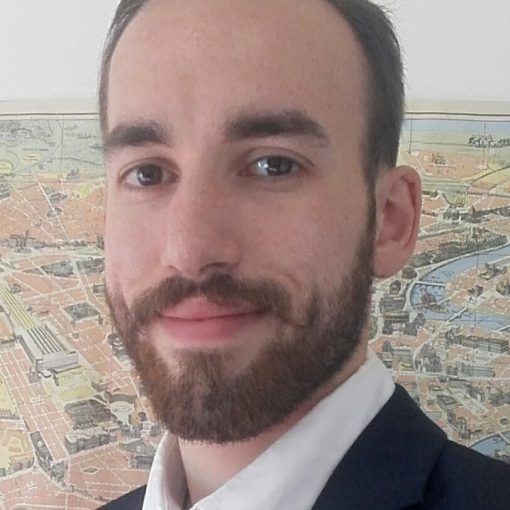European Union Geopolitical Watch Team: Mathieu Gotteland, Yanis Kourrad, Antoine Bézier, Etienne Mathieu
10/22/2022: German foreign (Greens) and defense (SPD) ministers ask finance minister (FDP) to triple military aid to Ukraine. -Mathieu Gotteland-
In a confidential letter publicized by German press agency DPA and dated October 22nd 2022, the German foreign minister Annalena Baerbock (Greens) and defense minister Christine Lambrecht (SPD) ask for the military aid to Ukraine, as foreseen in the currently drafted 2023 budget to be tripled. It currently allows for 697 millions euros and must be finalized by mid-November. Christian Lindner, minister of finance and president of the FDP (liberals), had conditioned his participation to the governmental coalition to the promise of not creating new taxes, maintaining a balanced budget and respecting the debt brake. He already had to resort to “special funds” to finance chancellor Olaf Scholz’ commitments on defense and energy. This information came two days before the Ukrainian foreign minister met the German chancellor in Berlin, who promised the delivery of three more IRIS-T air defense systems, for a total sum of 500 millions euros.
10/24/2022: Resignation of the Romanian defense minister after comments on the war in Ukraine. -Mathieu Gotteland-
The Romanian defense minister Vasile Dîncu (PSD) has announced, on October 24th 2022, his resignation. At the head of the ministry since November 2021, he says his decision is motivated by a disagreement with president of the republic Klaus Iohannis. He was under pressure however since he told on television, two weeks prior, that for Ukraine the only chance for peace lied in negotiations with Russia arbitrated by the USA and NATO. Attacked by USR (liberals), the main opposition party, he was also publicly criticized by president Iohannis, Marcel Ciolacu, at the head of the PSD (social-democrats), and prime minister Nicolae Ciucă (PNL, center-right). The PM will hold the defense portfolio until PSD chooses a successor to defend the official governmental position, which is only Ukraine is habilitated to decide what, when and how to negotiate with Russia to end the war.
10/25/2022: EU lifts sanctions on three Burundian officials. -Yanis Kourrad-
This Tuesday 25 October is marked by the declaration of the High Representative on behalf of the European Union of a lifting of sanctions against three Burundian officials, including the Prime Minister.
With a population of 11 million, the East African country had been at the centre of European concerns in 2015 when the EU imposed restrictive measures on certain Burundian politicians allegedly responsible for activities aimed at undermining democracy. Since then, the EU had imposed travel restrictions and an asset freeze on several Burundian officials. In response to the Burundian government’s efforts to ensure the rule of law, the EU decided to release Gervais Ndirakobuca, Godefroid Bizimana Léonard Ngendakumana, respectively Prime Minister, senior advisor in the present office and former senior military official.
However, a press release from the Council of the EU recalls that the EU still remains “concerned that major challenges remain unresolved”, in particular with regard to the preservation of human rights, and calls on “the Burundian government to translate its commitments into effective and concrete actions”. This is why, after reviewing the restrictive measures against Burundi, the EU has decided to “renew for one year the regime of restrictive measures”, the press release reads, and recalls that this regime of restrictions can be changed at any time.
10/26/2022: Meeting between Emmanuel Macron and Olaf Scholz, against the backdrop of the crisis in Franco-German relations. -Antoine Bézier-
On 26th October, French President Emmanuel Macron received German Chancellor Olaf Scholz at the Élysée Palace, at a time when Franco-German relations are going through an unprecedented crisis. This was symbolised by the announcement on 19th October of the postponement of the Franco-German Council initially scheduled for 26th October in Fontainebleau. In a tweet, the German Chancellor expressed his satisfaction with his meeting with the French President: “It was a very good and important discussion today – on European energy supply, price increases and joint armament projects“.
Differences on various issues have led to a deterioration in relations between Paris and Berlin. In the field of energy, Paris has not taken kindly to Olaf Scholz’s announcement, without consulting his European partners, of a 200-billion-euro aid plan for individuals and companies in the face of soaring gas and electricity prices, and fears in particular a distortion of competition in Europe. France is also opposed to the MidCat gas pipeline project between Spain and France, supported by Germany. A joint communiqué between France, Portugal and Spain dated 20th October announced an alternative consisting in the creation of a green energy corridor linking Portugal, Spain and France.
On defence, Paris was unhappy with Germany’s decision to buy some thirty American F-35 fighter jets (part of the German rearmament plan following the Russian invasion of Ukraine), while French industry produces the Dassault Rafale and the two countries cooperate on the FCAS (Future Combat Air System) project. France also opposes a missile shield project with an Israeli component (European Sky Shield Initiative) supervised by Germany and supported by more than ten European NATO countries and Finland.
Finally, as regards the vision of the EU, Olaf Scholz is in favour of a rapid enlargement of the European Union towards the East, while Emmanuel Macron sees a reform of the way the EU functions as a prerequisite for any enlargement.







